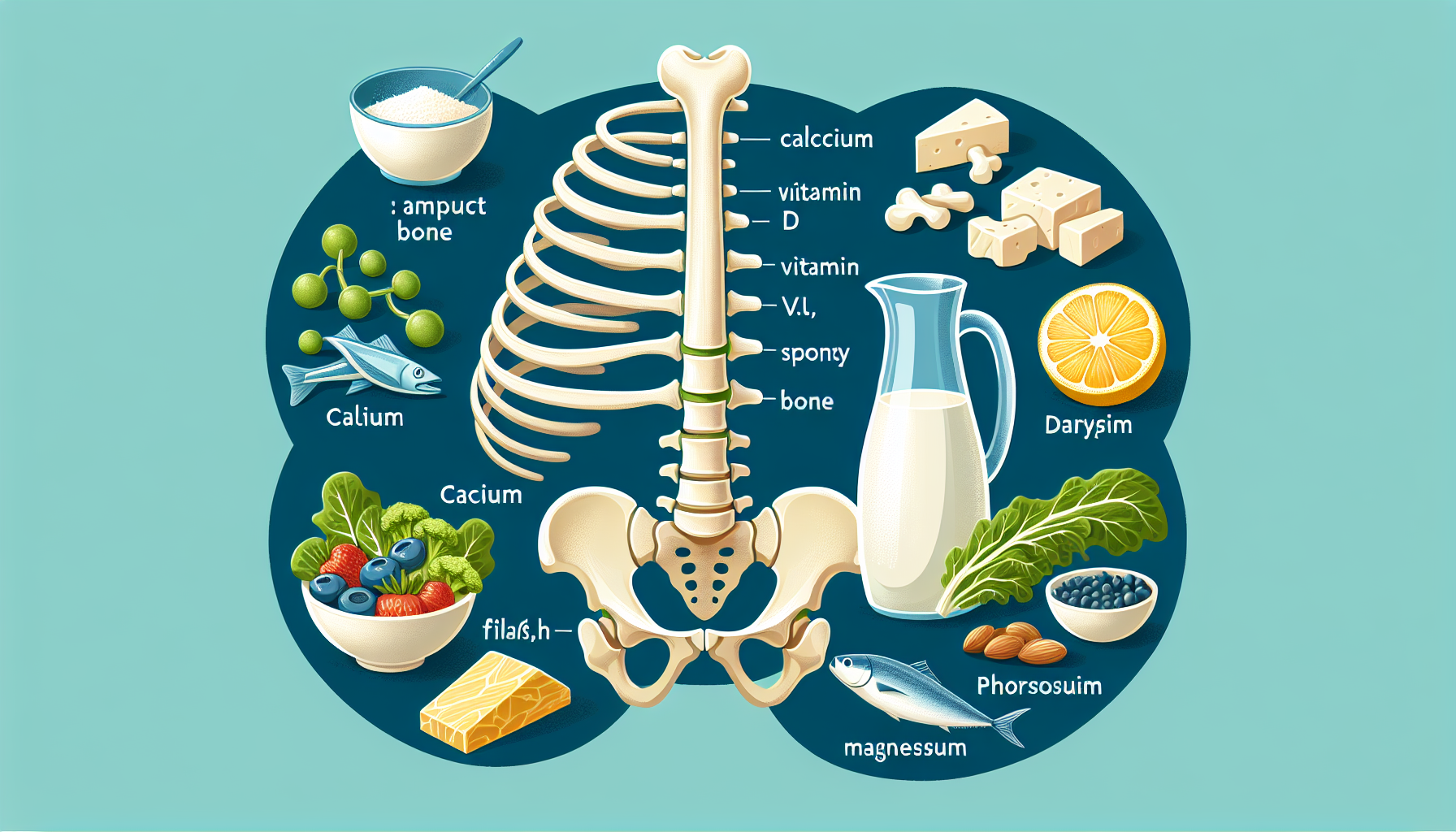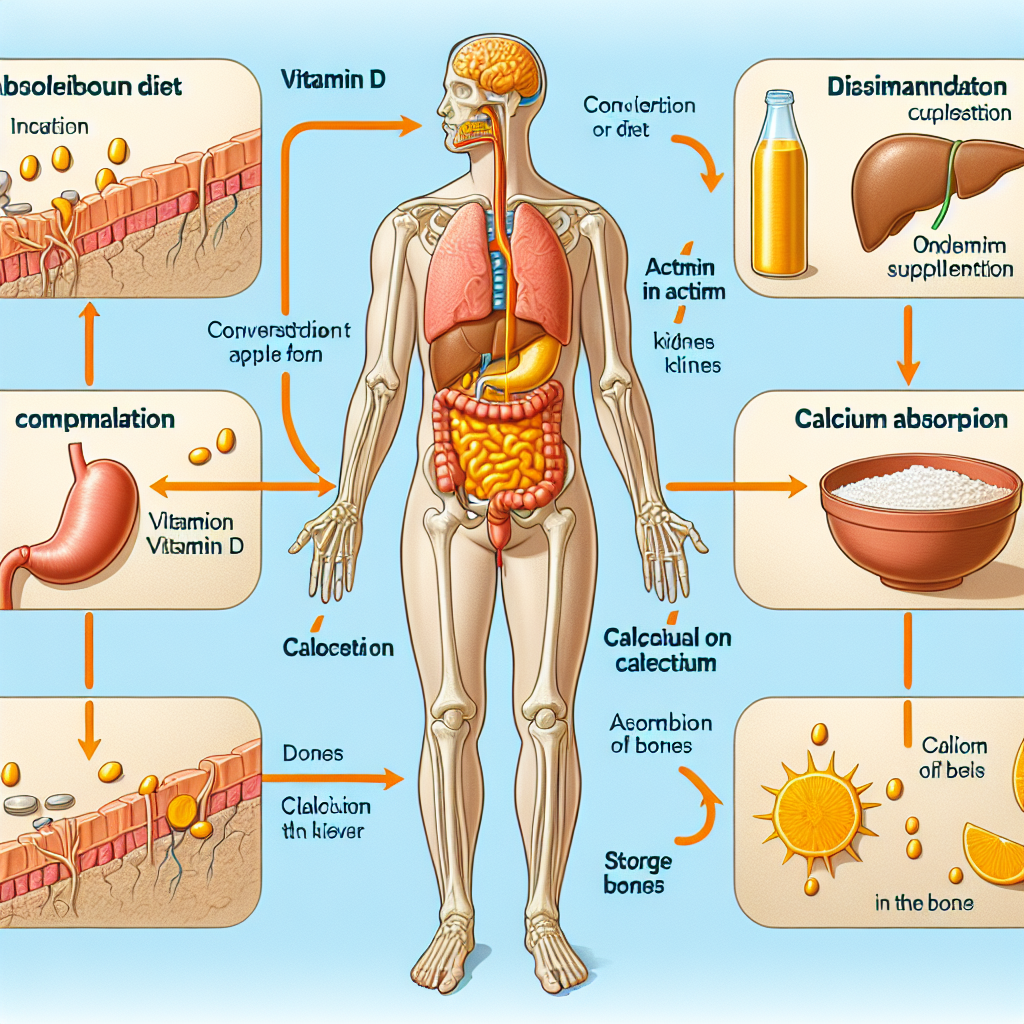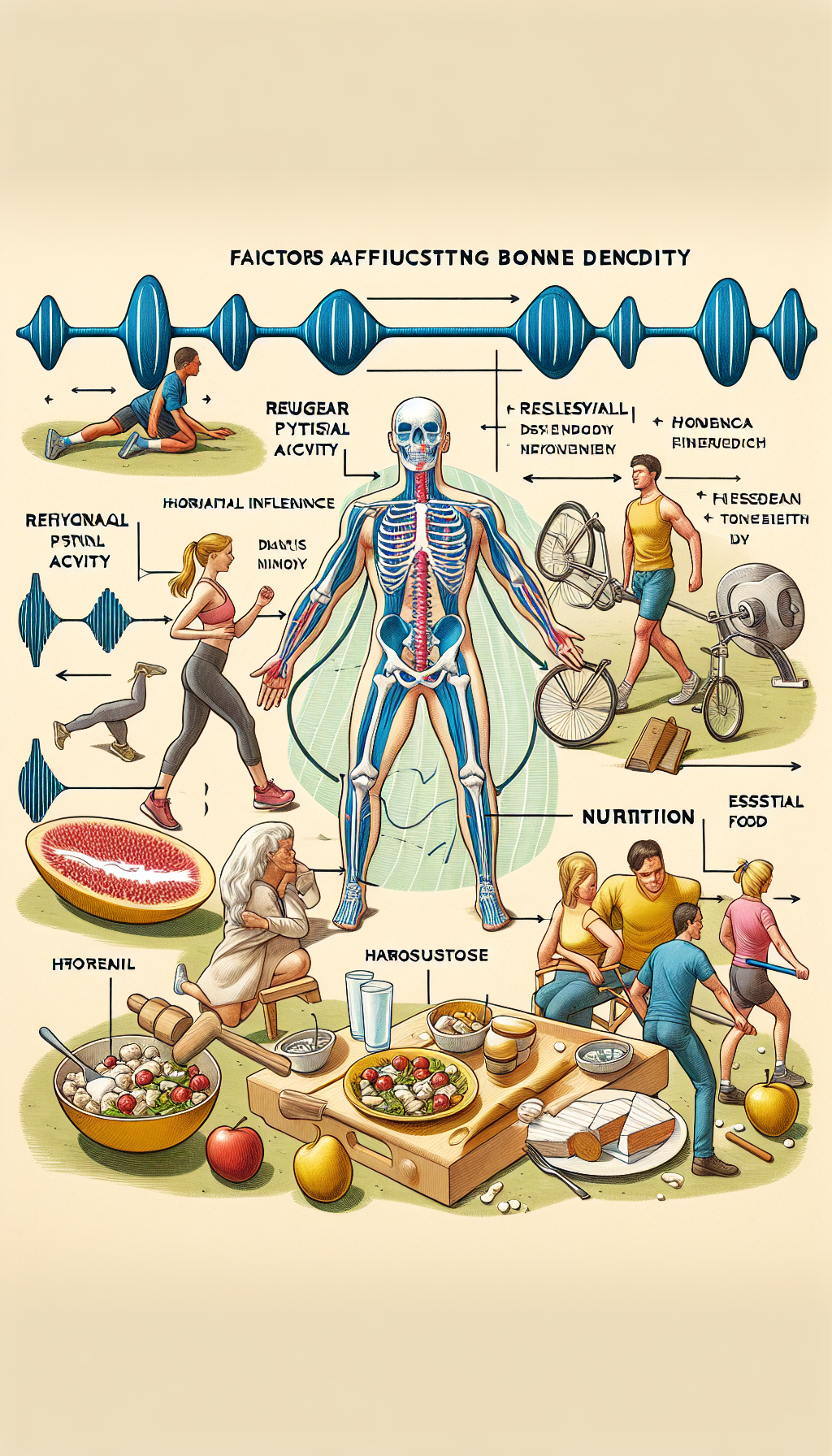Bone density, a critical aspect of overall health, is often overlooked in discussions about nutrition and diet. Yet, the interplay between nutritional absorption and bone density is a significant factor that influences our skeletal system throughout our lives. This article delves into the complexities of how our bodies process nutrients to support bone health and the various factors that can impact this intricate system.
The Foundation of Bone Health
Bones are living, growing tissues that require a constant influx of nutrients to maintain their strength and density. Calcium and phosphorus are the primary minerals that make up bone tissue, providing the rigid framework that supports our body’s structure. However, it is not just about the minerals; the role of vitamins and other nutrients in bone metabolism is equally vital.
The Role of Calcium and Vitamin D
Calcium is the cornerstone of bone health, crucial for maintaining bone density and preventing disorders such as osteoporosis. However, calcium cannot effectively contribute to bone health without adequate vitamin D levels, which facilitate calcium absorption in the intestines. Insufficient vitamin D can lead to inadequate calcium absorption, undermining bone density.
For an in-depth understanding of calcium metabolism and bone health, the article The Effects of Aging on Calcium Metabolism and Bone Health provides valuable insights.
Magnesium, Vitamin K, and Bone Integrity
Magnesium plays a subtle yet significant role in bone health, working in tandem with calcium to ensure proper bone formation. Vitamin K is another essential nutrient that supports bone health by modifying bone matrix proteins, improving calcium absorption, and reducing urinary excretion of calcium.
The impact of vitamin K on bone metabolism is further explored in the article The Impact of Vitamin K on Bone Metabolism.
Nutritional Absorption: A Critical Factor
The body’s ability to absorb nutrients from food or supplements is not a given; it is influenced by a myriad of factors including digestive health, age, and the presence of specific substances that can either enhance or inhibit absorption.
Digestive Health and Nutrient Absorption
Optimal digestive health is essential for the efficient absorption of nutrients. Conditions such as celiac disease, Crohn’s disease, or chronic pancreatitis can severely impair the body’s ability to absorb nutrients, leading to deficiencies that can affect bone density.
For those seeking to understand more about digestive health and its connection to nutrient absorption, visit Digestive Health.
Age and Nutrient Absorption
As we age, our bodies naturally become less efficient at absorbing nutrients. This can be due to a decrease in stomach acid production, changes in the digestive tract, or the body’s reduced ability to synthesize certain vitamins and minerals.
Inhibitors and Enhancers of Nutrient Absorption
Certain foods and substances can either hinder or enhance the absorption of nutrients. For example, high levels of sodium can increase calcium excretion, while oxalates found in some vegetables can bind to calcium, preventing its absorption. Conversely, the presence of vitamin C can boost iron absorption, and healthy fats can aid in the absorption of fat-soluble vitamins such as vitamin D.
External Factors Affecting Bone Density
Aside from nutrition, various external factors can influence bone density. Physical activity, particularly weight-bearing exercises, can stimulate bone formation and increase bone mass. Conversely, a sedentary lifestyle can lead to decreased bone density over time.
Hormonal changes, especially in postmenopausal women, can also affect bone density. Estrogen plays a protective role in bone health, and its decline during menopause can accelerate bone loss.
Strategies for Optimizing Bone Health
Maintaining strong bones requires a multi-faceted approach. Here are strategies to consider:
- Ensure a balanced diet rich in calcium, vitamin D, magnesium, and vitamin K.
- Engage in regular weight-bearing and muscle-strengthening exercises.
- Avoid smoking and excessive alcohol consumption, as these can impair bone health.
- Consider supplements if dietary intake is insufficient or if you have a condition affecting absorption.
For those who have experienced an injury, the article Strategies for Improving Bone Density Post-Injury offers tailored advice for recovery and bone health optimization.
Conclusion
Bone density and nutritional absorption are closely intertwined, with each influencing the other in significant ways. By understanding and applying the principles of good nutrition and healthy lifestyle habits, we can support our skeletal system and enhance our overall well-being.
For further reading on specialized topics related to bone health, consider exploring external resources that provide niche insights into the role of specific nutrients and bone-related conditions:
- Role of Probiotics in Bone Health
- Impact of Trace Minerals on Bone Metabolism
- Understanding Lactose Intolerance and Bone Health
- Effects of Caffeine on Bone Density
- Vegetarian Diets and Bone Health
By integrating the insights offered by such resources with the practical advice provided here, individuals can make informed decisions to promote and maintain healthy bones throughout their lives.



